JCPOA talks meaningless unless Iran’s interests guaranteed, says senior Iranian MP
As speculation grows about the next round of negotiations to revive the US-ditched Iran nuclear agreement, a senior Iranian lawmaker says any negotiation that does not guarantee and secure the country's interests is not worth engaging in.
“It is self-evident that Iran’s interests must be guaranteed in any negotiation,” Mahmoud Abbaszadeh-Meshkini told ICANA on Saturday, saying, “Any negotiation that does not guarantee and secure Iran’s interests cannot be entered [by Tehran].”
Arguing for a give-and-take approach during the talks, he said in return for making concessions, Iran should gain concessions that are worth it.
Iran and the other five remaining parties to the 2015 nuclear deal, also called the Joint Comprehensive Plan of Action (JCPOA), have held six rounds of talks in Austria’s capital, Vienna, to salvage the faltering agreement by bringing the US, as the violator of the deal, back into compliance.
In quitting the JCPOA in May 2018, former US President Donald Trump reinstated sanctions on Iran that had been lifted under the accord, while piling on the pressure with new bans, as the other parties failed to protect Iran’s contractual benefits.
Abbaszadeh-Meshkini maintained that Trump’s anti-Iran moves made him the “bad cop” while the European parties to the deal – France, Britain and Germany – played the “more dangerous role” of the “good cop.”
The Vienna talks were adjourned in late June as participants failed to settle unresolved points of contention, including the need to remove all US sanctions permanently and provide Iran with assurances over Washington’s compliance with the deal.
Then, Iran’s democratic transition after holding its presidential election protracted the pause.
‘Iran, US not on same moral footing’
As the break from the talks goes on after two months, the Joe Biden administration says it “can’t wait forever” for Iran’s return to the negotiations.
US Special Envoy for Iran Robert Malley said on Friday that the US has not received any indication that Iran’s new president, Ebrahim Raeisi, is prepared to commit to the seventh round of the talks.
“We can’t wait forever as Iran continues its nuclear advances because at some point their advances will be such as to make a return to the JCPOA much less valuable to the US than it would otherwise be,” Malley said in an interview with Bloomberg Television.
“But let’s not drag this on for too long because [at] some point, we’ll have to reach a different conclusion,” he said.
The top US diplomat also repeated Washington’s insistence on a mutual return to compliance with the JCPOA without providing Tehran with a guarantee that it will not leave the deal again.
Reza Nasri, an international lawyer and foreign policy analyst, criticized Malley’s remarks, saying, “It’s not exactly as if both parties withdrew and must now take similar measures to come back to compliance.”
“Iran and the US neither enjoy the same weight of credibility, nor are they on the same moral footing,” Nasri wrote in a tweet, explaining that the US unjustifiably withdrew from the JCPOA in violation of UN Security Council Resolution 2231, escalated tensions and inflicted billions of dollars in damage to Iran amid a deadly pandemic.
1/4 Iran and U.S. neither enjoy the same weight of credibility, nor are they on the same moral footing: U.S. unjustifiably withdrew from the JCPOA in violation of UNSCR 2231, escalated tensions and inflicted biliions of $ in damages (and lives) to Iran amid a deadly pandemic. https://t.co/pN5euTCMoH
— Reza Nasri (@RezaNasri1) September 4, 2021
He then argued that Iran merely reacted to the US withdrawal by beginning to reduce its nuclear commitments after a year, in total compliance with the provisions of the JCPOA.
‘Era of unilateral compliance over’
Last December, Iranian lawmakers took a strong move by passing a law requiring the Iranian administration to further scale back the country’s nuclear commitments in order to compel the US to remove its sanctions and push other JCPOA signatories to honor their commitments.
Referring to that law, Abbaszadeh-Meshkini said the Iranian Parliament clarified the way for how to enter negotiations.
The top lawmaker said the law, dubbed the Strategic Action Plan to Counter Sanctions, aimed to safeguard the country’s national interests and is legally binding regardless of which administration is in power.
He also stressed that the era of unilateral compliance and hit-and-run is over.
“Relying on its internal powers, the Islamic Republic of Iran has abandoned passive policies and will play an active role in world interactions,” Abbaszadeh-Meshkini added.
Meanwhile, the Raeisi administration has said although it would never leave a “logical negotiating table”, it will not engage in talks just for the sake of talks.
VIDEO | Intl. Day for the Elimination of Violence against Women: A stark reminder of Gaza women
Australia denies ex-Israeli minister Shaked visa
VIDEO | 85% of Yemeni displaced people face daily hunger crisis
US House passes bill targeting charities and pro-Palestine groups
VIDEO | Supporting Gaza genocide
Hezbollah attacks Israeli forces after Lebanese homes blown up
World leaders, states hail ICC arrest warrants for Netanyahu, Gallant
MP: US accountable for possible Israeli 'foolishness' to attack Iraq


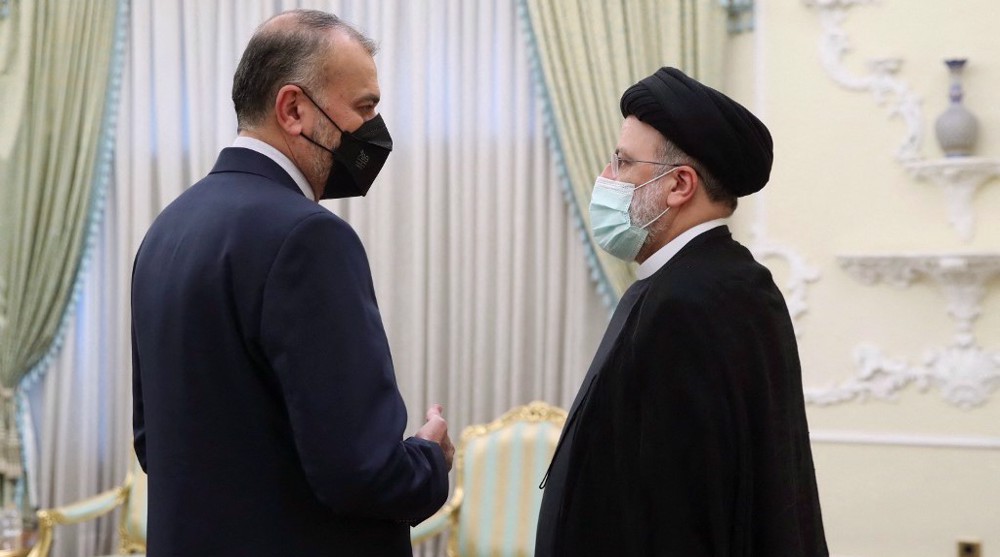
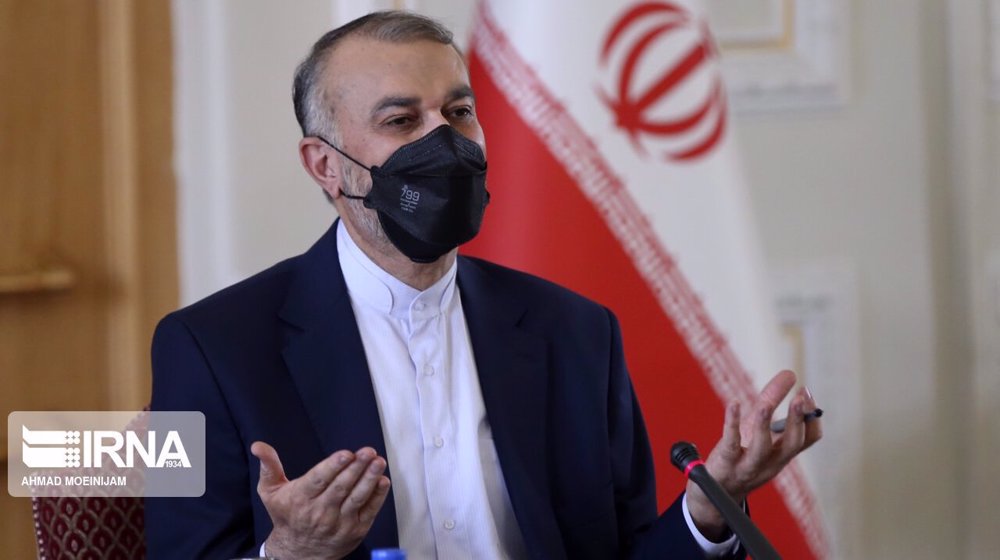
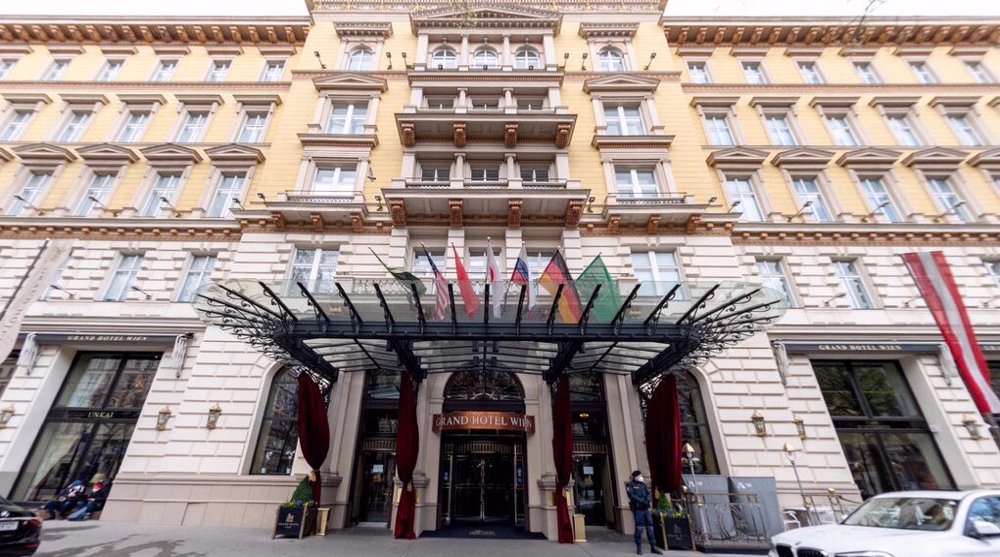
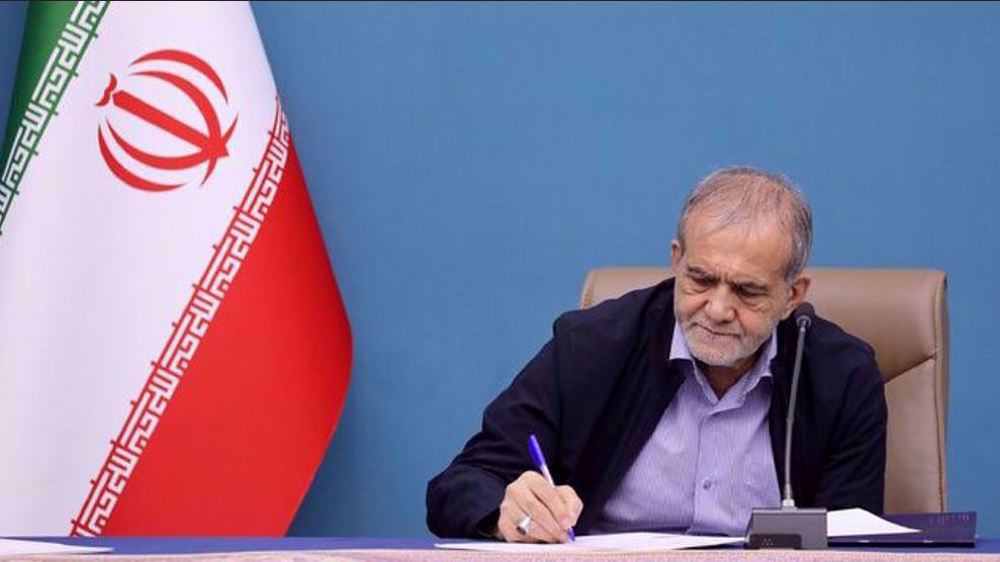
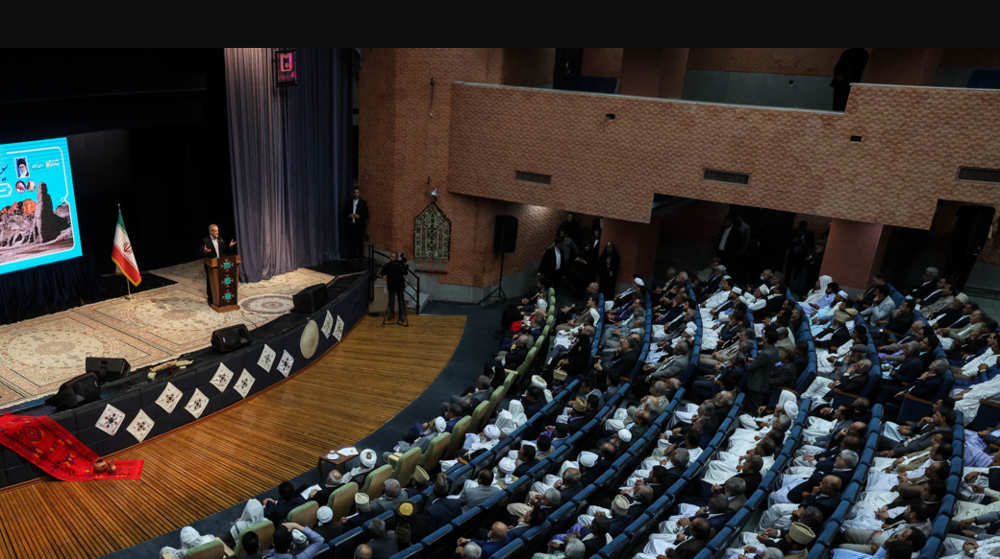
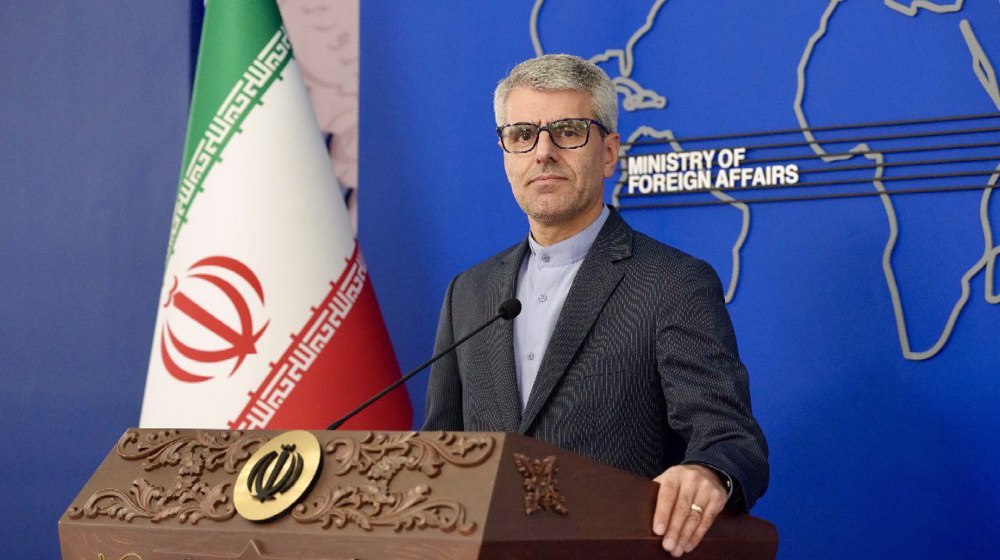



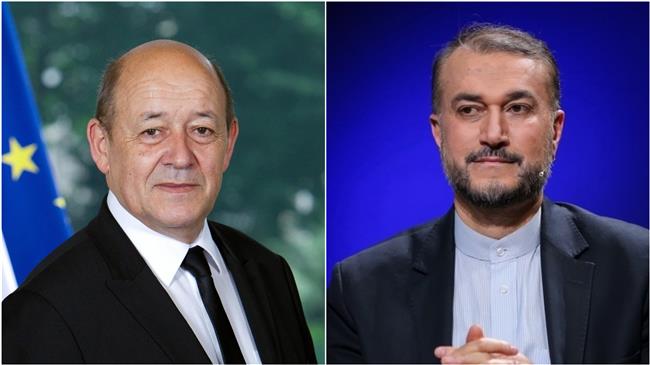
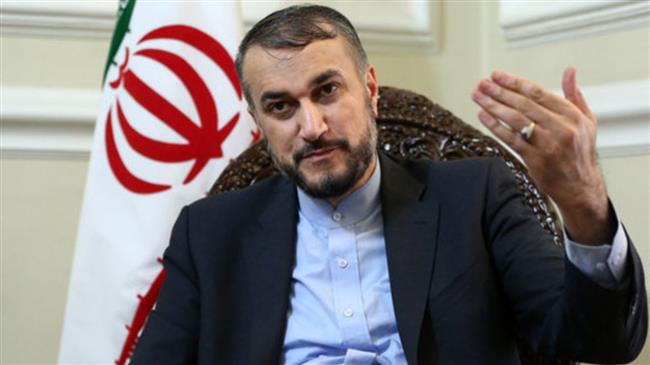
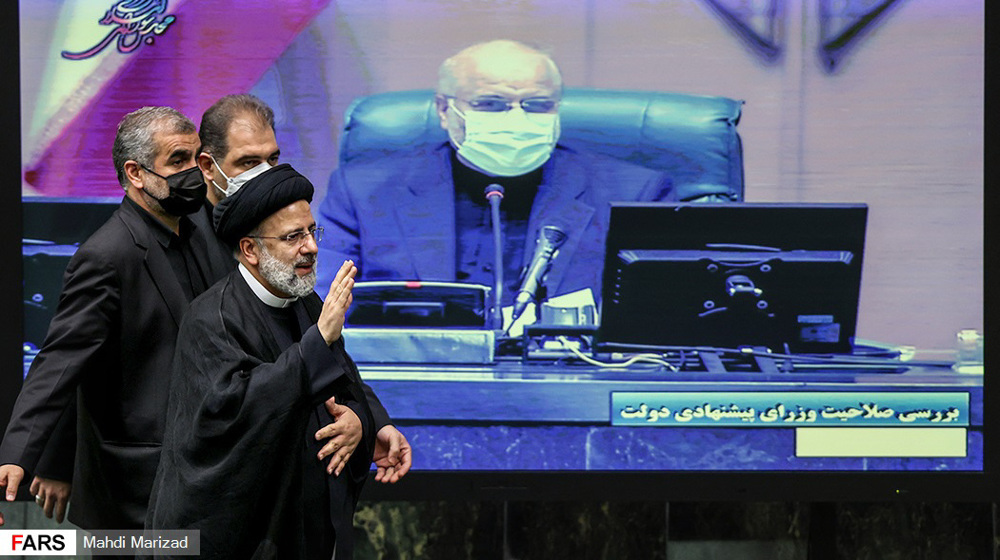
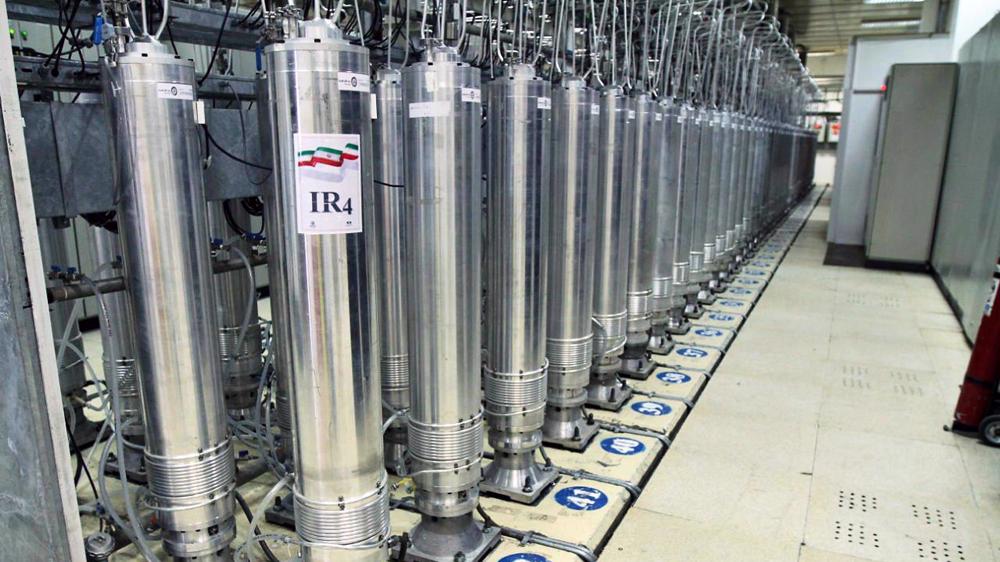

 This makes it easy to access the Press TV website
This makes it easy to access the Press TV website